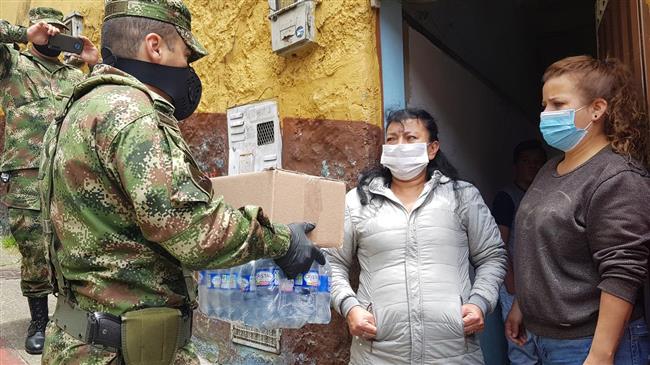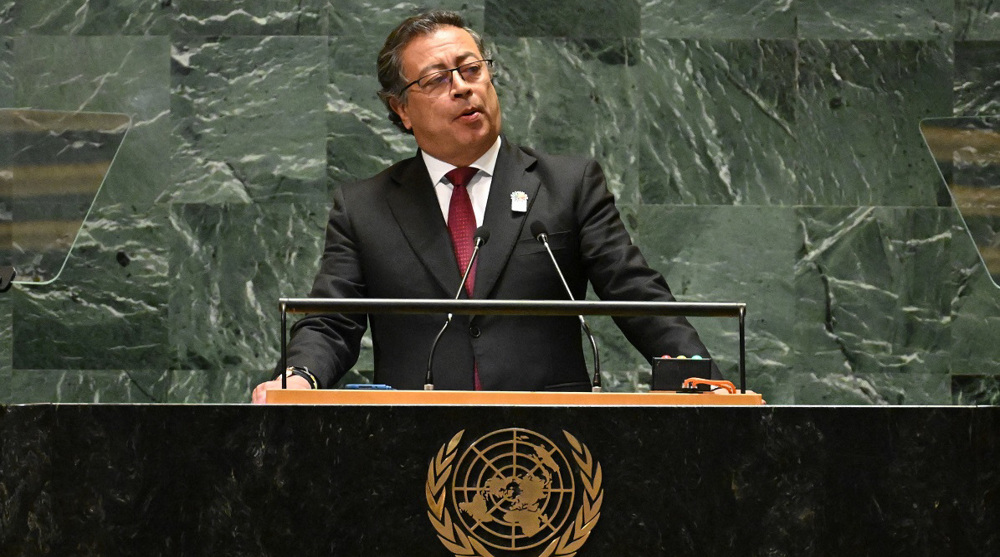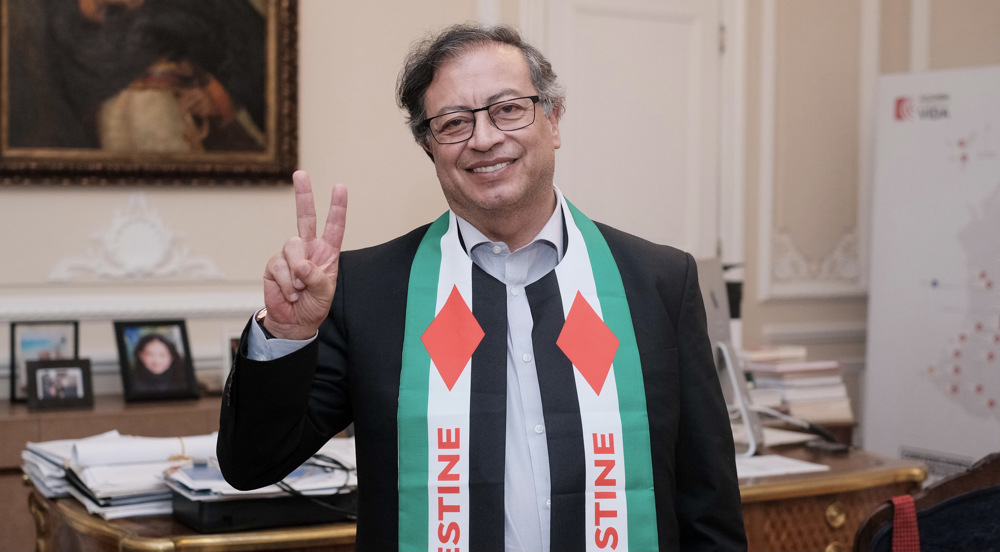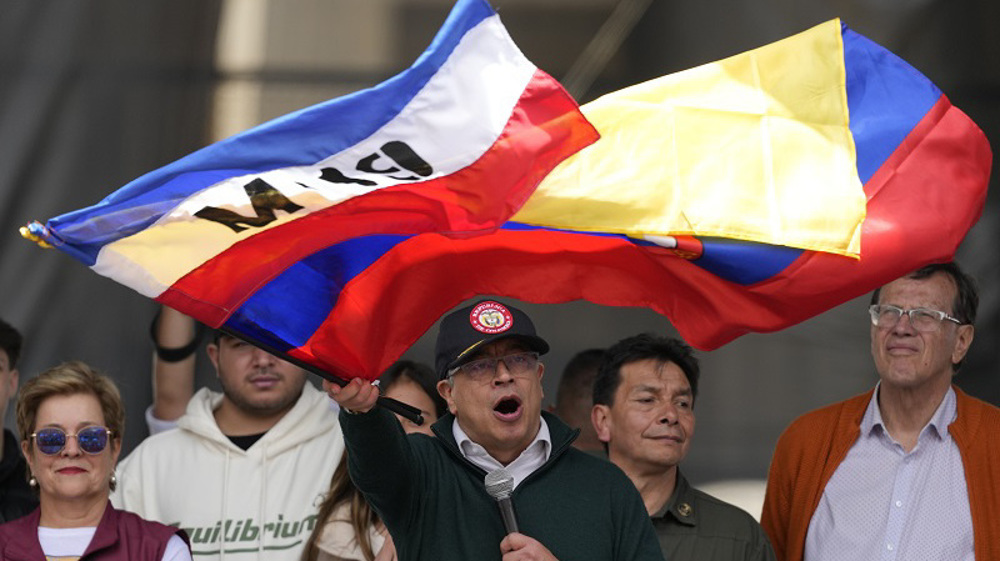Colombia gives food donations to poor people of Bogota amid lockdown
The Colombian government has begun providing some of the poorest residents of the capital Bogota with food donations as the city of seven million people goes through more than a month of lockdown to combat the COVID-19 pandemic.
According to a government order, dozens of the homeless are also given a chance to shower and change clothes on Friday, just a day after angry crowds of the Andean city had set tires on fire and blocked roads in protests they staged to demand state help during the quarantine.
The COVID-19 disease, caused by a new coronavirus, was transmitted from wildlife to people in the Chinese city of Wuhan late last year. It has affected 210 countries and territories across the globe and has so far infected more than 2,282,330 people and killed over 156,360.
The World Health Organization (WHO) has declared the outbreak a global pandemic.
Official figures by Colombia's Health Ministry shows that as of Saturday, 3,439 people have tested positive for COVID-19 and 153 others have died in the Latin American country.
The government of President Ivan Duque Marquez has budgeted 18 trillion pesos (some $4.43 billion) to support an inadequate healthcare system and fund welfare payments during the lockdown that will continue until April 27.
However, many families, who work in informal industries like street selling, construction and recycling, are currently under increasing pressure from the persisting lockdown as they are now cut off from work and are striving to make ends meet. Many of these families say they have not yet received any aid from the government.
On Friday, residents of the poor Egipto neighborhood began receiving boxes of rice, beans, sugar, salt, canned meat, toilet paper and bottled water from army soldiers, who had worn protective gloves and face masks.
“I’m so grateful to the army because they are the only ones who have gone house to house,” said a tearful Luz Maria Piraquive, 61. “This arrived just at the moment when we’re lowest on supplies.”
Separately on Friday, the mayor’s office offered showers, toiletries, changes of clothes and meals to the homeless, some of whom have begun living on streets due to the fallout from the pandemic.
“I’ve been sleeping on the street for seven days,” said 42-year-old Hamilton Mosquera, who lost his job as a club doorman when the government closed nightlife last month as part of the lockdown.
Daniel Mora, from the city’s social integration department, says these newly-established self-care sessions provide a place where the people in need can have access to showers, clothes, bio-safety supplies like alcohol, antibacterial gel and food.
Iran warns against US-Israeli plot to weaken Muslims, dominate region
VIDEO | Public uproar in US against Israeli regime
‘Ghost town’: 70% of Jabalia buildings destroyed by Israel
Mother’s Day: Sareh Javanmardi’s inspiring journey as Paralympic champion and mother
Russia downs over 40 Ukrainian drones as Putin vows 'destruction' on Kiev
VIDEO | Yemen: A bone in Israeli neck
D-8’s role in Iran’s economy after Cairo summit
China slams US as ‘war-addicted’ threat to global security











 This makes it easy to access the Press TV website
This makes it easy to access the Press TV website